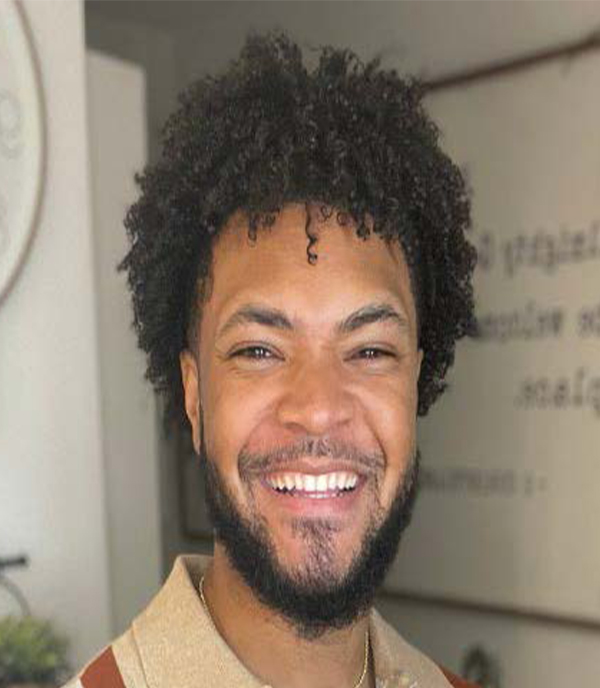CSWE Minority Fellow Wants to Leave Impression in Social Work Field
Shelton Young, CSWE Fellow Heading link

Social work instructors and researchers have left an impression on Shelton Young. He wants to follow in their footsteps and do the same.
Using the knowledge and experience he has gained in the Jane Addams College of Social Work’s doctoral program, Young envisions entering academia to teach social work and conduct field research upon graduation. A licensed clinical social worker whose practice experience includes supporting youth and transitional-aged adults in various settings, Young was one of 25 doctoral students throughout the United States chosen as a Minority Fellow by the Council on Social Work Education (CSWE).
The Minority Fellowship Program was initiated to reduce health disparities and improve health care outcomes of racially and ethnically diverse populations by increasing the number of culturally competent behavioral health professionals with doctoral degrees. Applicants must hold a social work master’s degree from a CSWE-accredited program, and their career goal must be to assist underserved individuals with or at risk for mental health and/or substance abuse disorders.
Young is passionate about helping underrepresented children and families. He has worked in child welfare, counseled children in private practice, served in public education in grades kindergarten through high school, and was a therapist in a university counseling center. He is intent on continuing to play a vital role in young people achieving success.
“Child and emerging adulthood are complex developmental stages in which young people tend to face adversity,” Young said. “My goal is to aid in recovering from such issues so that young people can thrive as well-adjusted adults. Social work practice with young people provides an early orientation to navigating life’s challenges, such as stress, trauma, anxiety, depression, and developmental concerns.
“Mental health impacts every area of a young person’s life. Helping to ensure optimal mental health increases their chances of experiencing more positive outcomes.”
A native of North Carolina, Young enrolled at the University of North Carolina Greensboro with a goal of becoming a teacher. During a semester of student teaching, he felt leading a classroom was limiting his ability to address conditions that hindered his students’ learning – housing, food insecurity, violence – so he turned his focus to social work. He earned his master’s degree in social work with a concentration in clinical social work from The Joint Master of Social Work Program at North Carolina Agricultural and Technical State University and UNCG, a unique collaboration between the largest HBCU (Historically Black Colleges and Universities) and PWI (Predominantly White Institutions) that was formerly a women’s college.
As a social worker, Young has witnessed children go without the resources they need and disengaging in services prematurely, a pervasive issue among children affected by poverty and other sociodemographic factors. More work is required to develop and implement policies to address the needs of marginalized youth, and Young said he is excited to play a role in the unfinished work.
“I aspire to research mental health, social contextual factors, familial relationships, and how these factors influence risky health behaviors among Black youth,” he said. “Earning a Ph.D. in social work will equip me with the skills to affect change within my research area. There are so many overlaps between my research interests and the research conducted at Jane Addams. The faculty have taken me under their wings, offering much-needed guidance that helps promote the confidence I need to finish the program.”